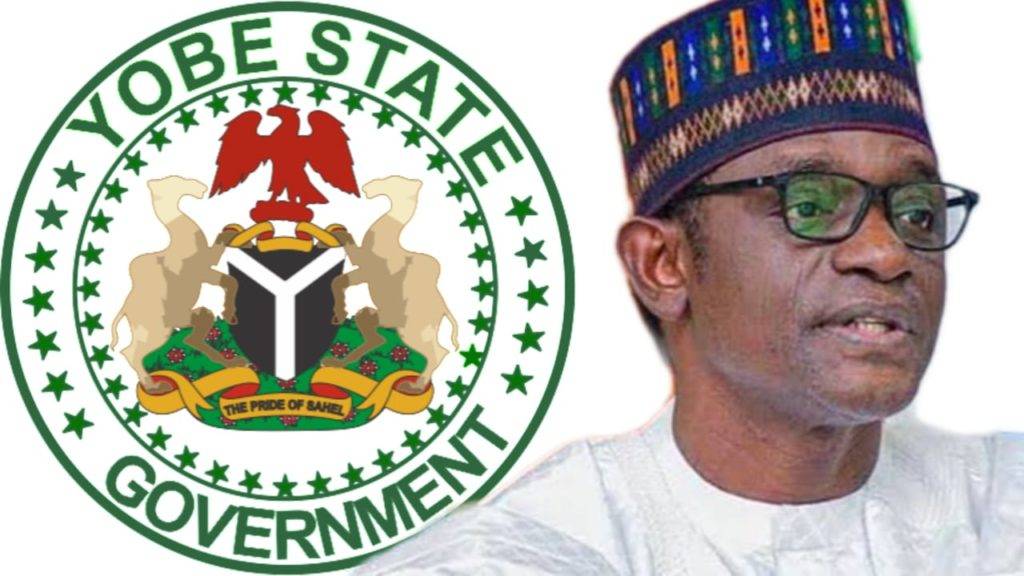In a significant move aimed at alleviating the impact of subsidy removal on civil servants, the Yobe State Government has given its nod to a wage award of N35,000. The decision was formalized in a memo signed by the acting Head of Service, Hamidu M. Alhaji, and subsequently forwarded to the Secretary to the State Government, Baba Malam Wali.
Governor Mai Mala Buni has taken a proactive step by appointing the Secretary to the State Government as the chairman of the committee responsible for overseeing the implementation of the N35,000 wage awards to civil servants. The committee, comprising six members, has the Permanent Secretary of Establishment serving as the secretary. The primary task of this committee is not only to assess the financial implications of the wage awards but also to engage in negotiations with labor unions. These negotiations will focus on determining mutually acceptable rates that strike a balance between the interests of the government and the welfare of the labor force.
Governor Buni Takes the Lead in N35,000 Wage Award Committee
The Yobe State Government’s decision to appoint Governor Mai Mala Buni as the chairman of the committee overseeing the N35,000 wage awards to civil servants underscores a commitment to transparency and efficient implementation. By placing the governor at the helm, the government signals a hands-on approach to navigating the complexities of wage adjustments and negotiations with labor unions.

Furthermore, the committee’s composition, which includes key stakeholders such as the Permanent Secretary of Establishment as the secretary, emphasizes a balanced representation. This move suggests a strategic alignment with the interests of both the Yobe State Government and civil servants. The committee’s mandate to determine the financial implications of the wage awards highlights a commitment to fiscal responsibility, ensuring a sustainable and equitable solution. As negotiations commence, it remains to be seen how this inclusive approach will impact the final agreements reached between the government and labor unions.
Committee Formed to Negotiate Acceptable Rates in Yobe’s Wage Awards
In a bid to foster collaboration and ensure a fair outcome, the committee appointed by Governor Buni has been tasked not only with assessing financial implications but also with negotiating acceptable rates with labor unions. This dual focus on financial prudence and cooperative negotiation positions the Yobe State Government as proactive and responsive to the concerns of both civil servants and the broader public.
As the committee engages in negotiations, its role in finding a balance between the Yobe State Government fiscal responsibilities and the expectations of labor unions will be closely observed. The outcome of these negotiations is likely to have far-reaching effects, not only in Yobe State but as a potential model for other regions facing similar challenges. The Yobe State Government’s approach to addressing the subsidy removal’s impact on civil servants through a well-structured committee is a step towards maintaining industrial harmony and economic stability in the state.

Yobe State Government #35,000 Palliative for Civil Servants Alleviates Economic Strain
In a commendable move, the Yobe State Government has announced a #35,000 palliative for civil servants, acknowledging the severe economic challenges they face, especially in the aftermath of subsidy removal. The decision comes at a crucial time when the economy is grappling with inflation, leading to a significant erosion of the purchasing power of individuals. Despite stagnant salaries, the rising inflation has inflicted economic pain on citizens, pushing many towards the brink of poverty.
This substantial financial support is a strategic response to mitigate the spiral effects of subsidy removal. By injecting extra funds into the hands of civil servants, the government aims to cushion the blow of inflation and prevent further decline in living standards. This initiative is expected not only to alleviate the immediate financial burden on individuals but also to stimulate economic activities by boosting consumer spending. As a result, the palliative is anticipated to have a positive ripple effect on the overall productivity of the government.
Improving Standards of Living and Government Productivity
The #35,000 palliative for civil servants is not just a financial relief; it is a crucial step towards enhancing the standards of living for a significant portion of the population. With the cost of living on the rise, this financial support will provide much-needed assistance in meeting essential needs, from groceries to utility bills. As individuals experience an improvement in their standards of living, the potential for increased productivity is foreseeable.
As citizens’ economic conditions stabilize, they are better positioned to contribute actively to the growth of the economy. By addressing the immediate financial strain on civil servants, the government is laying the groundwork for improved morale and increased focus on work responsibilities. A content and financially secure workforce is likely to be more productive, translating into enhanced government efficiency and service delivery. In the long run, this palliative measure not only serves as a lifeline for struggling citizens but also as an investment in bolstering the nation’s overall productivity and well-being.
Table of Contents
Discover more from OGM News NG
Subscribe to get the latest posts sent to your email.














